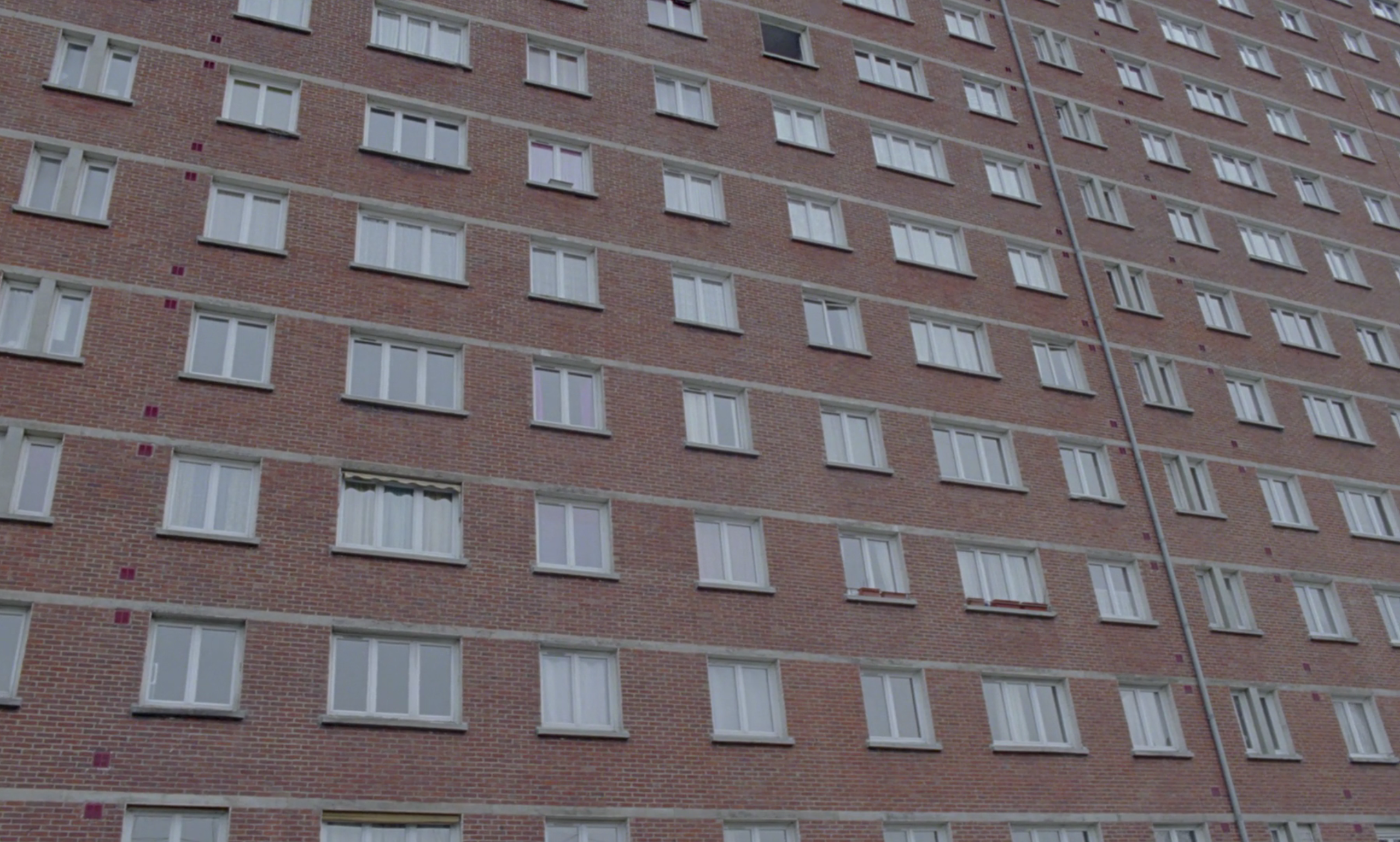Récif
documentary, 10’, 35, France, 2017
Trois paroles, à flanc d’une infinité de briques. Elles ont différent âges. Elles se sont formées au cours d'entretiens réalisés avec les habitants du lieu. "Que voyez-vous quand vous êtes à la fenêtre ?" Ils regardent vers la couleur, vers le point où la route commence, à l’endroit de la soif, dans le désert et sur la mer. Par trois fois, la route a heurté ce récif architectural, paradigme d’une modernité radieuse aussitôt radiée, qu’on appelle barre d’habitation.
Three voices, flanking an infinity of bricks. Their ages are different. They shaped themselves throughout a series of interviews led with the inhabitants. "What do you see when you stand at the window?" They gaze toward color, where the road begins – a place of thirst –, in the desert or in the sea. Three times has the road hit that architectural reef, the paradigm of some modernity – once radiant, soon written off – referred to as a housing block.

///
“À mesure que la caméra balaie la barre d’immeuble de Récif – le film d’Assia Piqueras –, une
révélation avance vers nous : le mur et le ciel sont une
même chose. Il ne s’agit pas pour autant de transpercer la muraille, ni même de traverser théologiquement l’écran, mais plus simplement (cette simplicité est une
montagne) – avec la clarté pudique du poème – de voir
dans la façade un ciel, celui-là même qui déborde à
droite et à gauche de l’écran. Voici qu’on assiste à une révélation si fragile que l’effacement dont elle est l’objet est sa plus sûre garantie :
l’expérience spirituelle n’existe que parce qu’elle rend
l’invisible vivant. Pour moi, c’est clair, l’horizon de toute l’histoire de
la poésie est ici mis en jeu avec presque rien.”
“As the camera sweeps over the housing
block in Récif – the film by Assia Piqueras –, a revelation moves towards us: the wall and the sky are the same thing. The point, even so, is not to
pass through the wall, or even to theologically cross
the screen, but more simply (and this simplicity is a
mountain), with the modest clarity of the poem, to
see in the façade a sky, the very sky that spills over
to the right and left of the screen.
Now we are witnessing a revelation so fragile that
the erasure of which it is the object is its greatest guarantee: spiritual experience exists only because
it makes the invisible alive.
For me, it’s clear: the horizon of the entire history
of poetry is here put into play with almost nothing.”
Yannick Haenel, from Panorama 19 – Novel, 2017
Article by Louise Vanoni, Beaux Arts Magazine, septembre 2019
avec
Madani Bekkouche
Lamine Diallo
Maissa Mansour
réalisation, écriture et montage
Assia Piqueras
production
Le Fresnoy - Studio national des arts contemporains
coréalisation des entretiens
Camille Martin
directrice de la photographie
Alexandra Sabathé
ingénieur du son
Jérôme Petit
régie
Thomas Guillot
musique
Adam Bernadac
montage son
Jérôme Petit
mixage
Simon Apostolou
étalonnage
Baptiste Evrard

2024
Círculo de Bellas Artes, screening, Madrid, Spain
2019
Broadcast on Beaux Arts Magazine
Festival La Chambre verte, screening, curated by Géraldine Gomez, Auteuil, France
2017
Panorama 19, curated by Jean de Loisy, Le Fresnoy, Tourcoing, France